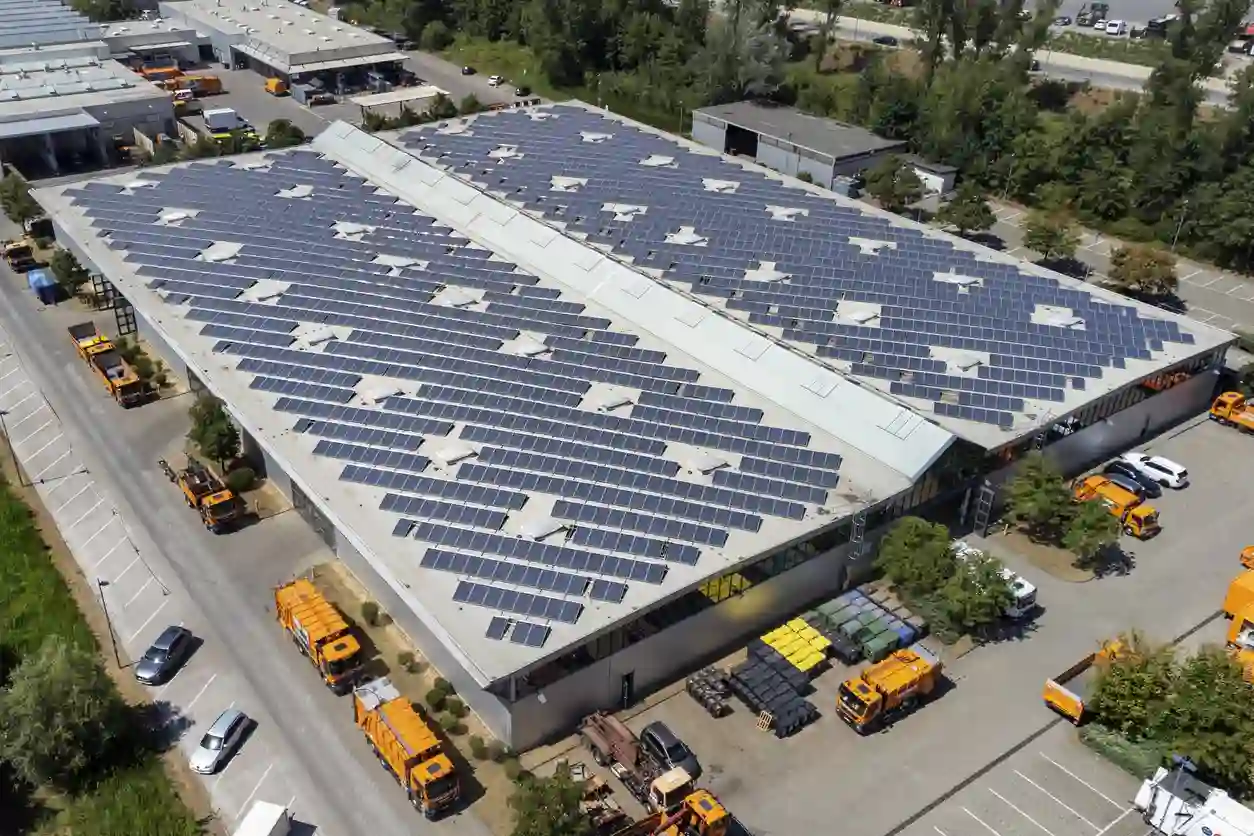OMNI Features|Germany's Industrial Shift to Solar Energy to Reduce Costs.UK Oil & Gas Company Energean Pursuing CO2 Storage License in Greece
OMNI Features|Germany's Industrial Shift to Solar Energy to Reduce Costs.UK Oil & Gas Company Energean Pursuing CO2 Storage License in Greece

(Source: iStock)
|Germany's Industrial Shift to Solar Energy to Reduce Costs
Philip Matthias has dedicated several months to persuading his father to implement rooftop solar panels at the Tridelta Group's headquarters in Thuringia, located in eastern Germany. The goal is to lower electricity costs and carbon emissions. Despite initial doubts about the €2.3 million investment, the project capacity was eventually decided to be nearly doubled, not only powering the factory but also providing renewable electricity to around 900 households.
Following the Ukraine war, Berlin has introduced legislation to expedite solar energy expansion, with a goal of achieving 80% nationwide renewable energy coverage by 2030. The feed-in tariffs offer guaranteed prices for renewable energy producers and reduce solar panel costs, leading more German companies to turn to solar energy to mitigate high energy costs.
Despite Germany having the largest solar and wind power capacity in Europe, SMEs still incur high grid fees and taxes. By producing their own solar energy, they can avoid these costs. In 2023, data from the German BDEW association indicated that these companies consumed about 69% of Germany's electricity. According to BVMW energy expert Marie-Theres Husken, with electricity prices not dropping as anticipated, companies are increasingly aware of the economic benefits of installing solar panels.
|UK Oil & Gas Company Energean Pursuing CO2 Storage License in Greece
Energean's subsidiary, EnEarth, based in London, has submitted an application to the Hellenic Hydrocarbons and Energy Resources Management Company (EDEYEP) to obtain a carbon storage permit in Greece.
This application aims to secure approval for the suitability of a carbon storage site and to enable the rights for carbon storage in the vicinity of Kavala, NE Greece, specifically at the Prinos site. The submission includes a report on Energean's technical capabilities, 50 technical reports, a detailed project description, and a proposal for revising the regulatory framework.
Energean obtained an exploration permit for CO2 storage in the Prinos field in September 2023. The project is divided into two phases, with the first phase focusing on utilizing existing infrastructure to achieve an annual injection capacity of 1 MtCO2, targeting the reception of compressed CO2 by the end of 2025 and liquid CO2 by mid-2027. The first phase is expected to address approximately 10% of Greece's industrial emissions.
The second phase is designed to achieve an annual liquid injection capacity of 3 MtCO2 over 25 years, while also exploring ways to increase injection rates in the short term to meet market demand. EnEarth plans to complete the environmental and social impact assessment by summer and initiate non-binding market testing, aiming to finalize binding market testing within the year.
Reference: yahoo!finance|offshore-energy.biz
